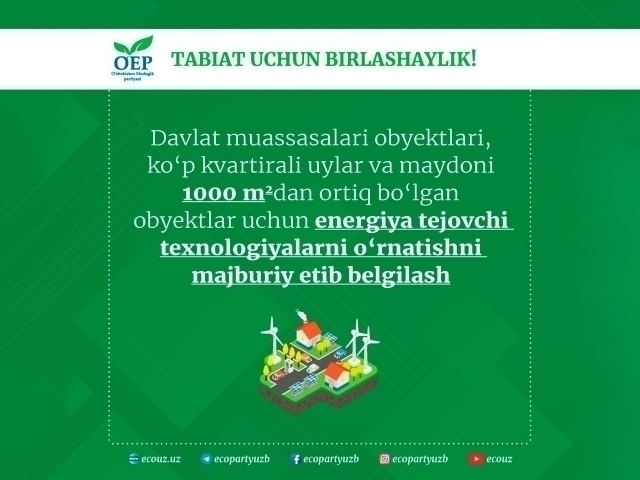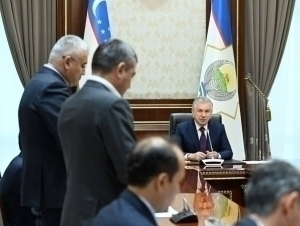Strengthening control over the use of energy-efficient materials is essential - Ecoparty
Local
−
11 September 2024 2965 2 minutes
There is a need for mandatory installation of energy-saving technologies in state institutions, multi-apartment buildings, and facilities with an area exceeding 1,000 m².
By 2030, energy demand in the construction sector is expected to increase by 2.5 times due to population growth, rising incomes, accelerated urbanization, and changes in consumption patterns.
In such circumstances, it is essential to develop comprehensive measures to improve energy efficiency in these areas to prevent a gap between energy demand and supply and to meet the energy needs of residential, commercial, and administrative buildings. Therefore, improving the energy efficiency of buildings has become a critical issue worldwide. To implement energy-saving projects and technical solutions, it is crucial to strengthen the control over using materials such as basalt, mineral wool, people, hydrosol, foam blocks, and aerated concrete.
In this regard, the Environmental Party of Uzbekistan has emphasized the importance of mandatory installation of energy-saving technologies for state institutions, multi-apartment buildings, and facilities with an area of more than 1,000 m² during this year's elections.
To achieve these goals, it is necessary to develop methodological guidelines for energy-saving in residential buildings, apartment complexes, social facilities, and other structures. It is advisable to prepare easy-to-understand and visually illustrated instructions for the general population and make them available on the Ministry of Construction and Housing and Communal Economy websites and social media platforms.
Buildings are one of the primary sources of greenhouse gas emissions, which are linked to energy consumption—whether through electricity, heating, or direct use of primary energy sources (e.g., cooking and individual heating systems).
Buildings consume 60% of natural gas, 56% of coal, 34% of electricity, and 67% of heat energy, accounting for 50% of final energy consumption overall. The majority of energy used in buildings is for space heating. Public buildings account for around 70% of energy consumption, while the residential sector consumes about 65% of final energy usage.
A comparative analysis of energy consumption across different countries shows that in Uzbekistan, annual energy consumption per square meter is 390 kWh, whereas in Europe, it averages between 120-150 kWh (38% lower than in Uzbekistan, or 240 to 270 kWh).
From this perspective, the initiative of the Environmental Party of Uzbekistan is highly relevant and will contribute significantly to enhancing the energy efficiency of buildings across all regions of the country.


